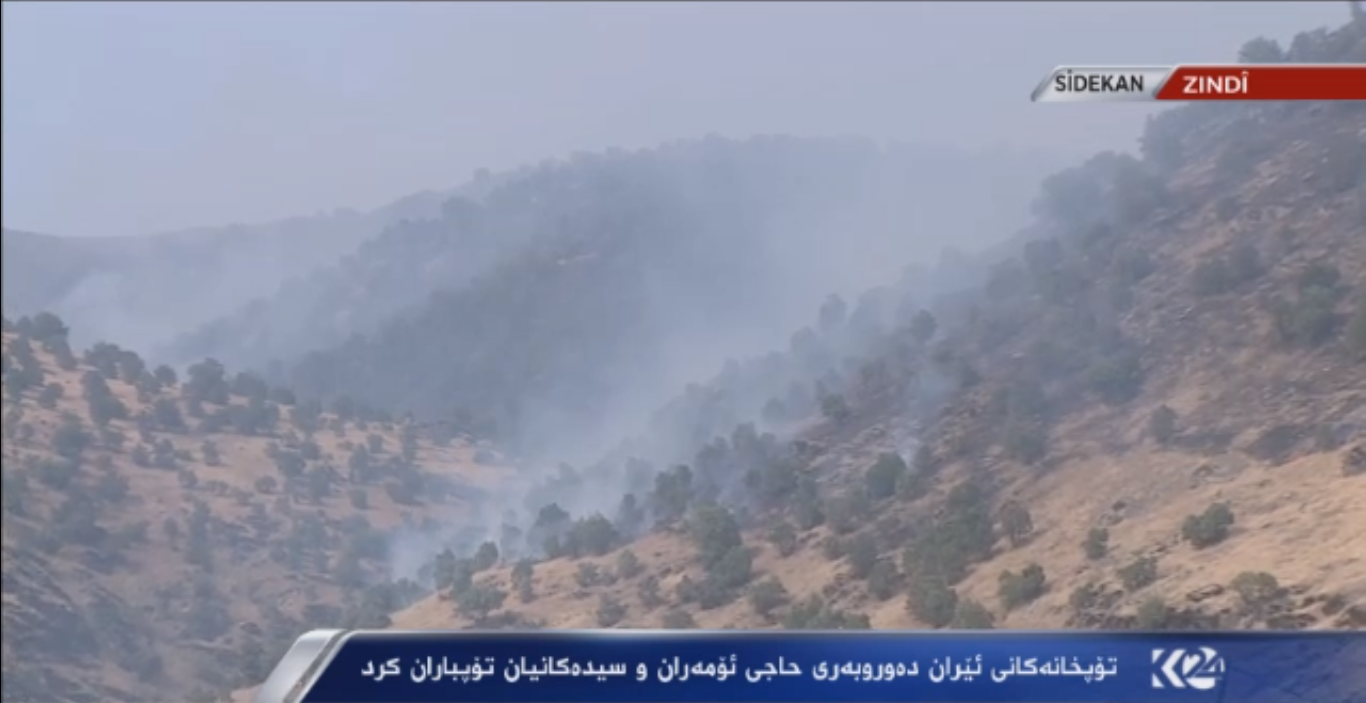US not concerned about Iranian shelling of Kurdistan Region

In recent days, Tehran has shelled several border villages in the Kurdistan Region (KR), and at least one Iranian village. Iran’s aggression injured five people in the KR, including three children. Although there were no fatalities, which could easily change if the shelling resumes,
The Kurdistan Regional Government (KRG) formally protested the Iranian attacks, as well as assaults the Turkish bombardments on its territory. On Monday, Erbil issued a statement, calling on both Tehran and Ankara “to stop their attacks against Kurdistan Region border areas,” which have injured civilians, forced dozens of villagers to abandon their, and damaged livestock and crops.
One might think that the US would protest these attacks on innocent civilians. However, in this instance, Washington does not seem able even to recognize that they are occurring, let alone condemn them.
On successive days this week, two different State Department spokespersons were asked to comment on Tehran’s aggression.
On Monday, the State Department spokeswoman responded to that request, saying, “I’ve seen those reports. We’re not in a position to confirm them. I’m going to refer you to the Government of Iraq as well as officials in the KRG.”
On Tuesday, the spokesman stated, “Elizabeth spoke to this yesterday. We’re aware of these reports, but I don’t have more specifics to share with you at this time. When we do, I’ll let you know.”
What might explain this lack of interest? Arash Saleh, the representative of the Democratic Party of Iranian Kurdistan (PDKI) in Washington, suggests that the US “has other concerns.” Those concerns would include the agreement with Iran over its nuclear program, one of President Barack Obama’s signature foreign policy initiatives.
Speaking earlier this month at Washington’s Bipartisan Policy Center, former US ambassador to Turkey, Eric Edelman, complained that the Obama administration has no policy to shape the future of the Middle East. When the ongoing violence finally comes to an end, the region will not look the same, he said. But the administration does not seem prepared even to think about what it should look like, let alone develop a policy to shape its future.
The KDPI is the oldest Kurdish political party in Iran, and perhaps the most popular. It’s roots lie in the short-lived Mahabad Republic, declared by Qazi Mohammed in 1945. Seventy years later, he remains a beloved figure among Iran’s Kurds.
Until now, Iranian Kurdistan had been quiescent. There had been no fighting for 20 years—since the mid-1990s. Following Iran’s 1979 Islamic revolution, Kurds were among the first Iranian groups to oppose Ayatollah Khomeini, and clashes continued until 1995.
That year, the Iranian regime assassinated some 200 PDKI figures. So an Iranian Kurdish intellectual who has researched the subject extensively told Kurdistan24. Such brutality ended Kurdish resistance to Tehran’s rule for over two decades.
.jpg)
[PDKI Peshmerga fighters on the border of the Kurdistan Region with Iran, June 23, 2016. (Photo: Kurdistan24)]
However, as Washington’s PDKI representative explained, his organization has recently become more active politically in Iranian Kurdistan. KDPI Peshmerga are inside Iran, where they are meeting with and organizing people. That activity precipitated the clashes with Iranian forces, which resulted in fatalities on both sides, although the losses were greater on the Iranian side.
In retaliation, Tehran attacked villages in the Kurdistan Region. Arash Saleh affirmed that there had been no KDPI Peshmerga in those villages. He noted that no KDPI Peshmerga had been injured in Iran’s attacks in those areas, only civilians.
The prominent role that Kurds in Iraq and Syria have assumed in the war against the Islamic State, and even the armed insurrection of the Kurdistan Worker’s Party (PKK) against the Turkish government, has renewed a sense of national identity among Iran’s Kurds, suggested this Kurdish intellectual (he prefers not to be identified.)
Two Kurdish parties are rivals to address that emerging nationalist sensibility. One is the KDPI; the other is The Party of Free Life of Kurdistan (PJAK). PJAK is a branch of the PKK—which the US considers a terrorist organization.
The KDPI is far more popular in Iranian Kurdistan than PJAK. This Kurdish thinker, however, suggests that the KDPI may have felt a need to assume a higher profile, lest PJAK become increasingly attractive to Iran’s Kurdish youth who are now feeling a renewed sense of their Kurdish identity. If so, Washington would be particularly well advised to show more concern for attacks on the KDPI, and, in any case, it should roundly condemn assaults on innocent civilians.
Editing by Delovan Barwari
